Description
ABSTRACT
Public Awareness as a Tool for Environmental Rights Enforcement in Nigeria
Gina I. Elvis-Imo* and Nitoni George Lawson**
This paper discusses the significance of public awareness in addressing environmental challenges by examining the nexus between lack of public awareness in environmental matters and breach of human rights to a clean environment. It observes that the lack of public awareness in environmental matters (which includes access to environmental information, public participation in environmental decision-making, and access to environmental justice) has truncated the enforcement of basic rights to a clean environment. Therefore, it argues that human rights issues related to environmental protection will be undermined if adequate efforts are not put towards creating public awareness in environmental matters. It further argues that creating public awareness on environmental matters would awaken more consciousness of the need to utilise judicial measures to redress and protect the environment, mainly through human rights enforcement procedures. Having identified the lack of public awareness on environmental matters as a critical challenge confronting environmental justice in Nigeria, this research proffers solutions to expand the frontiers of access to available environmental information (which entails adequate education on environmental matters), public participation in environmental decision-making, and access to justice.
Keywords: Environmental Rights, Enforcement, Public Awareness, Justice.
INTRODUCTION
A global claim to the environment as a form of right was proclaimed in the first United Nations Conference on the Human Environment1 1972 (otherwise known as the Stockholm Declaration), which provides that ‘man has the fundamental right to freedom, equality and adequate conditions of life, in an environment of a quality that permits a life of dignity and wellbeing.’2 The Stockholm Declaration further provides that human beings are entrusted with the goal of protecting and improving the environment for ‘present and future generations.’3 Achieving this goal would require responsible governments and organisations to promote public awareness of environmental matters to protect the environment.
The rationale behind the Aarhus Convention,4 which borders on public awareness, is equally hinged on the need to protect environmental rights. It provides that:
* LL.B, LL.M, PhD, BL. Associate Professor, Faculty of Law, Niger Delta University, Nigeria. Email address: gi**********@***il.com or el******@*****du.ng
** LL.B, LL.M, PhD, BL. Lecturer, Faculty of Law, Niger Delta University, Nigeria.
- Held 5-16 June 1972 in Stockholm, Sweden.
- Declaration of the United Nations Conference on the Human Environment (Stockholm) UN Doc.A/CONF/48/14/REV.I Principle
- Stockholm declaration (n 1).
- Convention on Access to Information, Public Participation in Decision-Making and Access to Justice in Environmental Matters (adopted 25 June 1998). Referred to as Aarhus Convention subsequently

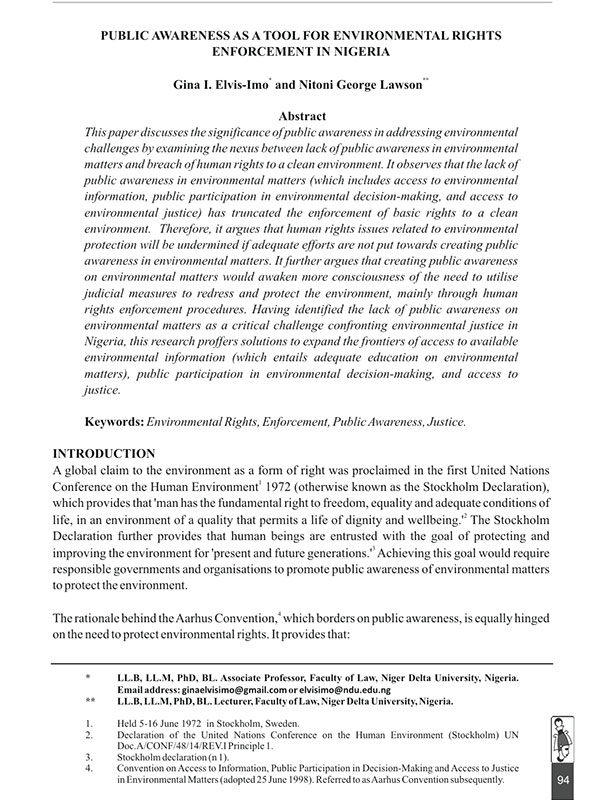
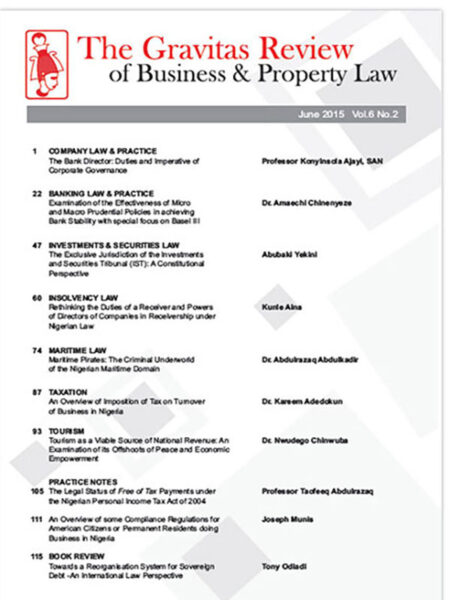
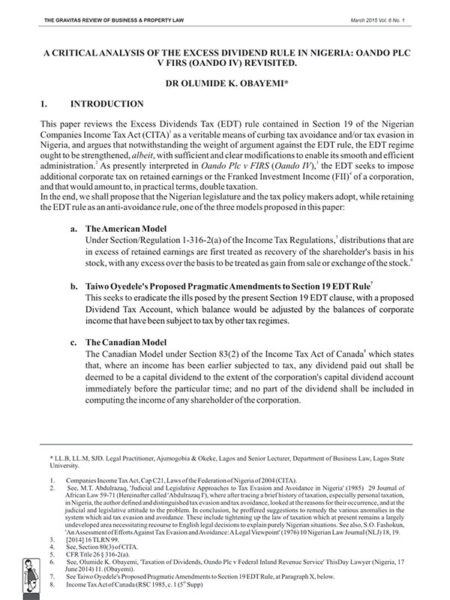
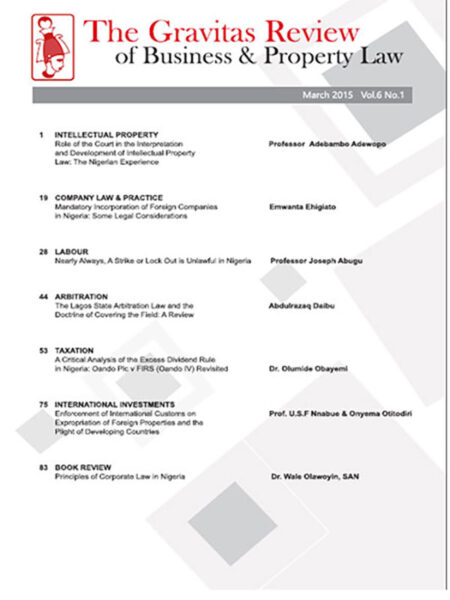
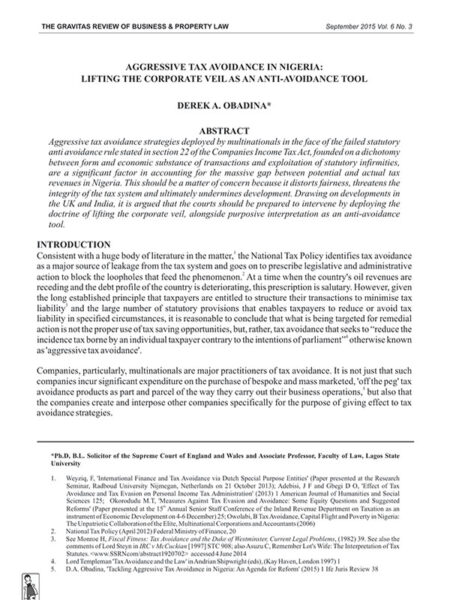


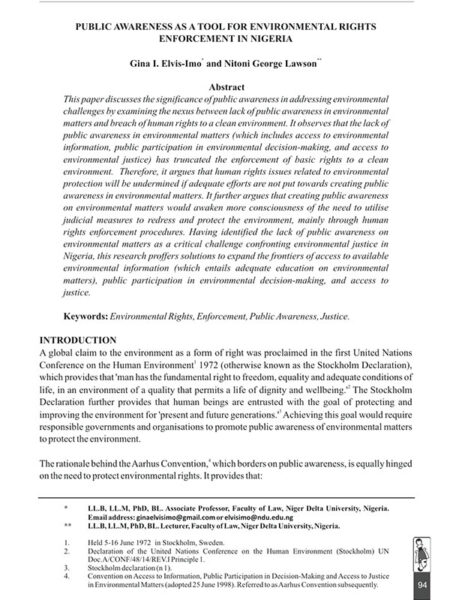
Reviews
There are no reviews yet.